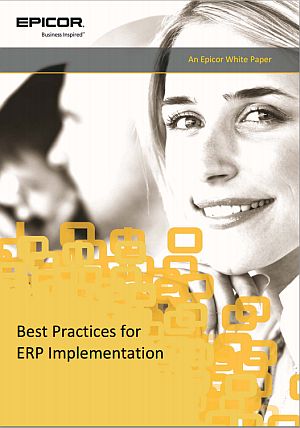Published on the 07/05/2014 | Written by Epicor Software Corporation

Research shows that 60 percent of companies perform some degree of customisation which can contribute to longer ERP implementation times and higher costs…
The role of Enterprise Resource Planning (ERP) systems in managing business processes has expanded significantly over the past decade from a focus on specific business areas such as manufacturing, procurement, or human resources, to broader use throughout the company. Although IT has traditionally been responsible for specifying and implementing technology within an organisation, successful ERP implementations require involvement from stakeholders at all levels, from executives to end users. For many companies, the transition from existing traditional systems to a new ERP one can consume significant corporate resources, including time, expense, and risk to business operations. This need not be the case. Panorama Consulting Solutions, an ERP consulting firm based in Centennial, Colo., publishes an annual report on the state of ERP worldwide. Their most recent report found that 54 percent of ERP implementations take longer than expected, while 56 percent of these implementations exceed budgeted costs. Table of Contents To find out more please download our free Whitepaper Best practices for ERP implementation Why, when, and how to invest wisely… The benefits of incorporating a data warehouse when upgrading your ERP… What to expect for the future of payables… Manual processes can lead to error-prone data analysis… What is a Finance Department and Manager Level KPI?…
1. Best Practices for ERP Implementation
2. Understand business processes and key requirements.
3. Build a business case for ERP with a positive ROI
4. Ensure proper project management and resource commitment
5. Gain executive and organisational commitment
6. Recognize the value of early planning
7. Focus on data migration early in the implementation process
8. Invest in training and change management
9. Know why you’re implementing ERP
10. The Value of a Structured Methodology…
FURTHER READING

Financial reporting and analytics solutions

Whitepaper: Data warehouse automation and ERP

eBook: The new AP department

Whitepaper: Streamline your financial year-end close

KPIs and Metrics for Finance Departments in 2020




























